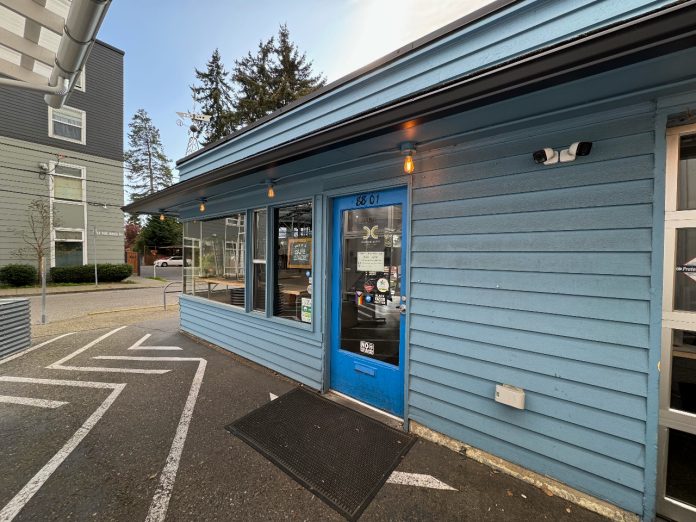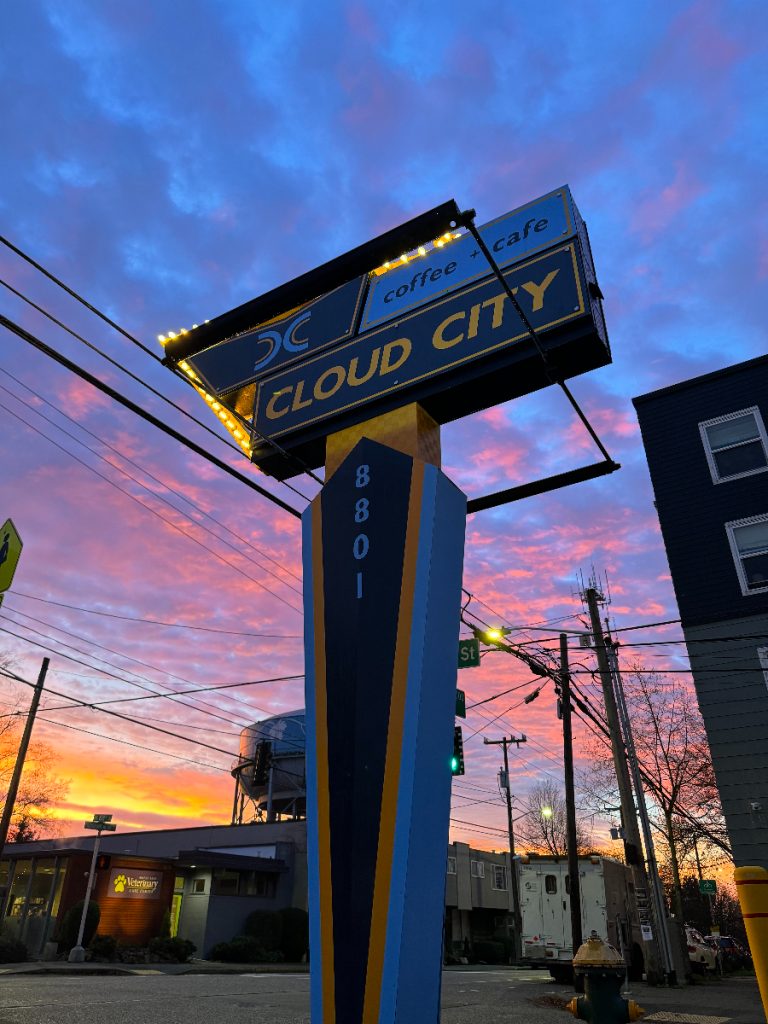
As a longtime small business owner in the Maple Leaf neighborhood of Seattle, Cloud City Coffee, I’ve witnessed so many changes to both the landscape and culture of Seattle. First off, when we opened in 2002, Maple Leaf was not known to anyone in Seattle outside of our little neighborhood (and part of why we created our “Maple Leaf 4 Life” bumper stickers). Now, with the new Seattle Comprehensive Plan released last month, Maple Leaf has been designated as one of 24 new “neighborhood centers.” I would be very excited if this plan actually did anything to address the current Seattle housing crises, but alas it does nothing of the sort.
As most can imagine, my largest cost is labor, but I have learned over the years the best way to control that cost is by keeping employees happy. This both reduces turnover and increases customer satisfaction. We are a member of the Living Wage for US project in that we guarantee we will pay the actual minimum wage as determined by the cost of living in our area (currently $22.57 an hour is what we have committed to paying between hourly and tips). However it’s still not enough.
The cost of rent, which rises over the inflation rate each year, has priced most of my staff out of the city. When we opened, most of my staff lived nearby. Now my staff have to commute into the city to work a service job. This not only increases traffic but also worsens emissions. It’s a lose-lose. The solution seems simple but in reality isn’t: we need to build more housing, and agreeing on where and how to do that has proven to be a problem that Seattle can’t solve.
We knew for many years that 50,000 people a year were projected to move here, and yet we still didn’t build enough housing. We have a city that’s mostly zoned for single family housing, and yet we continue to uphold that zoning (which if you know the history, is based on old redlining boundaries). And now, in 2024, as we plan for the future, seeing the large number of homeless people, seeing the high rents, the mayor puts out a proposal that only barely does more than if we did nothing at all. It’s a slap in the face to renters, the poor and lower middle class, and small (and big!) businesses.

We need bold action. We need a plan that calls for hundreds of thousands of new homes a year. We need updated zoning laws that allow for more apartment buildings at taller heights within all areas of the city. We need to remove parking requirements for neighborhoods (younger generations are not driving the same way and will not if we allow them to live closer to work). We need robust bus and bike lanes and pedestrian only areas that allow these non-drivers to get around easier (and more safely). We need a new Design Review process that doesn’t hold up new buildings due to the color of the brick (true story).
Don’t we want to live in a city that makes room for all socio-economic levels? Don’t we want to live in a city welcoming for all? Don’t we want to prevent even more people from becoming homeless (yes, there is a direct link between lack of housing and increased homelessness. The increase in the homeless population did not happen in a vacuum). Don’t we want artists, musicians and service industry people to live in our vibrant city? This vision of Seattle is greener, friendlier, more sustainable, healthier, and much better for business. If our leaders shared this vision, they wouldn’t have put out such a lacking plan.
We only need to look across the lake at Bellevue to see what’s possible. So far, their plan for housing seems more ambitious than Seattle’s, even though they are smaller. That fact should tell you all you need to know about how anemic this plan is.
What can you do to help us small businesses? The comment period for the plan is open until May 6 at 5pm. There is also a series of neighborhood meetings covering the plan where residents can comment. Please use your voice to ask for updated zoning laws, less capricious design review, and a bolder plan for many more thousands of homes.

Jill Killen
Jill Killen owns Cloud City Coffee in the Maple Leaf neighborhood, a longtime community meeting spot. She's also a certified Q Arabica Grader and award-winning coffee roaster. She resides in northeast Seattle with her wife, two daughters, mother in law and sister in law.

